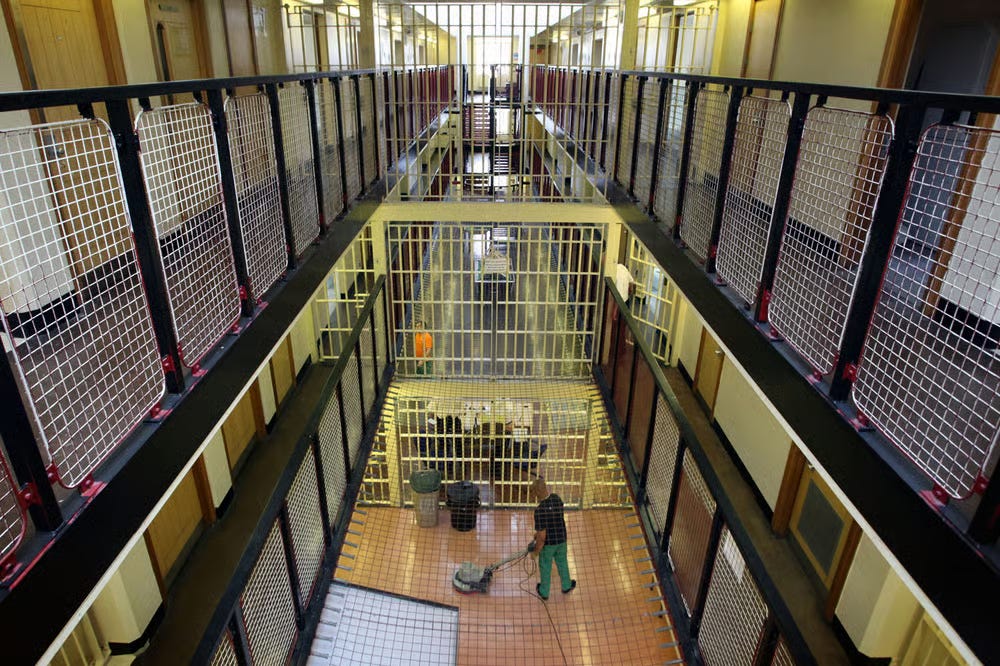Inquest finds HMP Belmarsh failings behind racist killing. Why this matters for Black people
Sundeep, 31, died from catastrophic head injuries after a brutal assault inside his cell by fellow prisoner Steven Hilden
Failings at HMP Belmarsh contributed to the racist killing of British Asian prisoner Sundeep Ghuman, an inquest jury has found.
This happened 25 years after the murder of Zahid Mubarek - another British Asian man - whose death was supposed to trigger major reforms to cell-sharing procedures across the prison estate.
The inquest hearing, held at Southwark Coroner’s Court from 20 October to 7 November 2025, assessed the circumstances surrounding Sundeep’s death on 19 February 2020.
Sundeep, 31, died from catastrophic head injuries after a brutal assault inside his Belmarsh cell by fellow prisoner Steven Hilden, 36, who had a long history of racist behaviour and violence.
“It was shocking to discover during the inquest that officers at HMP Belmarsh were still not classifying men with a known history of racism ‘high risk’, as required by the policy introduced following Zahid’s murder,” Jo Eggleton, of Deighton Pierce Glynn which is representing Sundeep’s family, said in response to the jury’s findings.
“Had they been conducting the mandatory checks, this would have been discovered years earlier”.
This case is not isolated. It fits into a broader picture of racial inequality in prisons, where safeguarding failures consistently affect Black and Brown people the most.
A brutal attack
The court heard evidence that Hilden - who had openly boasted about being part of a racist South London gang - used a table leg as a weapon.
Consultant Forensic Pathologist Dr Randall told the inquest that the injuries Sundeep sustained were commonly seen in road traffic collisions where there are serious, violent, high-speed forces being applied to the head.
At the time of the attack, three men - Sundeep, Hilden and his cousin - were sharing a cell, despite it being originally designed for two people.
This practice, driven by capacity pressures, has long been associated with increased tensions and violence.
Missed warnings, ignored alerts and systemic failings
The jury found that Sundeep was unlawfully killed, concluding that Belmarsh failed to follow its own Cell Sharing Risk Assessment (CSRA) policy in multiple critical ways:
Hilden had active racist alerts and a documented history of violence
Belmarsh staff marked him as “standard risk”, allowing him to share a cell with anyone
Staff failed to review his previous CSRA or prison notes
Policies requiring racist prisoners to be classed as high risk were not followed
Staff had insufficient training and a poor understanding of CSRA requirements
The jury stated clearly that Sundeep would not have been placed in a cell with Hilden had the assessment been properly completed - and that the prison’s failure to assess the risks posed by Hilden’s racism directly contributed to his death.
Triple-celling increased risks - but staff lacked guidance
Belmarsh’s decision to place three men in a cell was also examined.
Although the jury could not conclude that this directly contributed to Sundeep’s death, they noted that policies do not address the risks of triple-cell occupancy, leaving officers ill-equipped to assess dangers linked to overcrowding, imbalance of dynamics and heightened tension.
Coroner to issue Prevention of Future Deaths report
Assistant Coroner Manknell announced that he will issue a Regulation 29 Prevention of Future Deaths (PFD) report highlighting:
Failures in the CSRA process at Belmarsh and across the prison estate
Lack of guidance on managing racist prisoners
Inadequate consideration of broader risk factors
Safety concerns given widespread violence and drug use in Belmarsh
Black Current News readers: for those who aren’t aware, a PFD report highlights a coroner’s concerns during an inquest that circumstances creating a risk of other deaths exist - and that action should be taken to eliminate or reduce this risk.
These reports are a mechanism for the coroner to formally communicate these concerns to an individual or organisation believed to have the power to take action to improve policies, processes or systems to prevent future fatalities.

Echoes of Zahid Mubarek - 25 years on
Campaigners and legal representatives described the parallels with the murder of Zahid Mubarek, killed by his racist cellmate in 2000, as “deeply disturbing.”
Jodie Anderson, Senior Caseworker at INQUEST, added: “The similarities between Sundeep’s and Zahid’s murders, some twenty-five years apart, are a disturbing indictment of the myth of prison reform.
“The far-right are increasingly emboldened by reactionary politics that fan racial hatred. Prisons are a microcosm of society - and Sundeep was the human cost of a system that turned a blind eye to racism”.
She also criticised the Ministry of Justice (MOJ) and His Majesty’s Prison and Probation Service (HMPPS) for attempting to limit scrutiny of racism during the proceedings, saying: “Such tactics undermine the non-adversarial nature of inquests. You cannot prevent future deaths if you refuse to shine a bright light on the State’s darkest corners.”
Black Current News has contacted the MOJ and HMPPS for comment.
Black people
While Sundeep was Asian, this story is directly relevant to Black Current News readers: as of March 2019, around 58% of Belmarsh’s population was Black, Asian and Minority Ethnic.
Black people are generally overrepresented in prisons: while they make up around 4% of the general population in England and Wales, they account for approximately 12% of the prison population.
Failures around racism, risk assessments and cell-sharing disproportionately affect Black and Brown prisoners alike - making this a wider issue of racialised harm within the prison estate, not a single-community silo.
If you’ve been affected by racism or failings in the justice system and want to share your story, contact Black Current News confidentially



